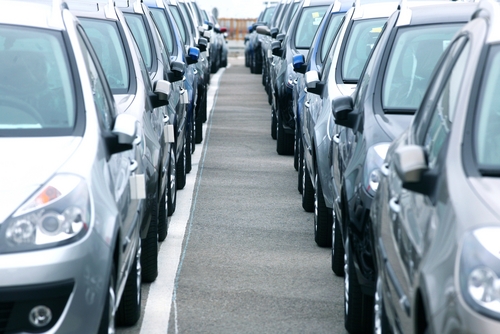 |
Big Fines Levied for Illegal Vehicle Imports
In early March, the Environmental Protection Agency (EPA) announced a settlement with a Minnesota-based power sports company and its two sister companies based in China for violations of CAA requirements. According to the EPA, between 2007 and 2013 the companies imported more than 12,000 highway motorcycles and recreational vehicles from China that were not certified by the EPA with a correct Certificate of Conformity (COC) for meeting federal standards for emissions. Of these, 993 vehicles were determined to have fuel tanks that did not operate properly to control fuel evaporation and gasoline vapor emissions, and 1,400 vehicles did not have proper emissions control information labels.
Forget expensive calls to lawyers and consultants. With Enviro.BLR.com, you get instant access, 24/7. Try it out today and get the 2014 EHS Salary Guide, absolutely free. Download Now.
The alleged CAA violations were discovered during joint inspections by the EPA and U.S. Department of Homeland Security’s Bureau of Customs Border Protection and through review of company documents and information. According to the complaint, approximately 1,117 motorcycles were considered to be uncertified because they were imported prior to the effective dates of their COCs. A second count alleged the same type of violations for 232 uncertified recreational vehicles and another five violations were for vehicles that were imported without benefit of either a COC or an allowable exemption. A third count alleged 1,063 highway motorcycles were sold or leased with non-conforming emission control labeling information.
In the settlement, the companies agreed to pay a combined $725,000 civil penalty and conduct a Recall and Fuel Tank Replacement Program to replace noncertified fuel tanks with certified tanks, and they must also correct emission control information labels on all vehicles still within their control.
Prior to that action, in January three Dallas-based companies and their owner were similarly cited and penalized for importing more than 24,167 highway motorcycles and recreational vehicles from several foreign manufacturers and selling them over the internet and at a Dallas retail location.
In this case, approximately 11,000 of the vehicles were not covered by an EPA COC, others did not conform to their assigned COC (such as with catalytic converters that were of a different dimension, or by having less substrate material and cell density than required), 23,000 were sold without required emissions warranties, and another 500 did not have proper emission control labels. The vehicles were imported between July 2008 and March 2009 and almost all were sold in the United States.
Everything You Need for Environmental Compliance
Enviro.BLR.com puts everything you need at your fingertips, including practical RCRA, CAA, CWA, hazardous waste regulatory analysis and activity, news, and compliance tools. Try it at no cost or risk and get a FREE report.
Under injunctive relief, the companies and their owner must either certify they are no longer engaging in activities regulated by the CAA or follow a compliance plan for all activities regulated under the mobile source provisions of the CAA for five years. A compliance plan would require quality assurance steps including vehicle inspections and emissions testing throughout the purchasing, importing and selling process. The companies must also either export or destroy 115 noncompliant recreational vehicles with nonconforming catalytic converters or carburetors that make the vehicles unsuitable for sale in the United States. The companies were also required to pay a $120,000 penalty.
Emissions standards for light-duty motor vehicles were first promulgated in 1968 and since then standards for different types of on- and off-road vehicles and motors were added in 1970, 1978, 1996, and 2008, and apply to all vehicles whether new or used and manufactured at home or abroad. Vehicles that do not meet the applicable standards or “non-conforming” vehicles, must be imported, tested, and certified by an Independent Commercial Importer (ICI) that holds a valid Certificate of Conformity from the EPA.
